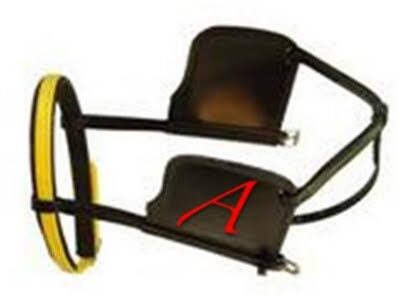One of the most ubiquitously employed atheist talking point is to basically use the word “atheism” and “science” in the same sentence whilst expressing anything at all related in any way to any discussion of atheism / theism (same goes for “atheism” and “evolution” but that is another issue).
Yet, what is the relation of atheism with science or science with atheism?
I have already determined that science has nothing to offer atheism in the post Omni-Science. Yet, it seemed appropriate to focus on the specific question of what is the conclusion of having many atheists claim that they base their atheism on science or that science implies an atheistic universe.
What is science? There are many definitions. Within the comments section of Atheism is Dead—which is True Freethinker’s predecessor—an atheist even included feelings in their definition of science. There is science as method, science as profession, science as co-opted by atheism, science as supposed know it all, science as only providing the best guess thus far, science as an operational process, science as a body of knowledge, science as a thing to be manipulated via schools of thought and professional rivalries, forensic science, hard science, soft science, etc., etc., etc.[1]
Let us consider common definitions of what people generally mean by “science” particularly within our context: science denotes a series of fields of study which apply certain methods—such as observation, testability and repeatable experimentation—which seek to ascertain, to the best of our current ability, the workings of the physical world / nature / the material realm. True science functions within limits, admits these limitations and does not pretend to go beyond them.
Many great and influential scientists, those who established the methods and fields of science in the first place, were theists of one sort or another—mostly from the Judeo-Christian tradition. These scientists premised the scientific endeavor upon their belief that there was a God, that this God is a rational being, that thus this rational God had created a rational creation and that therefore, the creation functions upon certain established laws which ensure a continuum which allows us to explore, observe and reproduce experiments—they believed in the heuristic God. Sans such rational consistency; one scientist would observe ice melting into water and another would observe ice melting into a dyslexic chinchilla.
The main point here is that those great scientists who established the methods and fields of science were intelligently designing a manner by which to explore God’s creation—the physical world, nature, the material realm—they believed that God created the material realm and thus, that therein there functions a system of material causes bringing about material effects. Some atheists seem to think that the more we uncover material causes for material effects the more that God becomes a superfluous concept. This may be a good defeater for certain theologies.
Yet, speaking from a Judeo-Christian perspective: material causes for material effects are only expected. This is a scientific prediction made within the Bible itself as God created the material realm, created time in which it functions and ceased from His creation activities (this was a biblical prediction of the first law of thermodynamics) so that it may function as tuned.
To reiterate: it is not surprising to theists and not deleterious to theism when scientists discover material causes bringing about material effects. Yet, this is too generalized as there certainly are theologies which claim that god(s) do things such as directly and constantly causing natural phenomenon such as a lightning god/dess, rain god/dess, wind god/dess, etc.
Thus, various theologies of these sorts may actually be discredited through scientific methods. However, others may not. For example, Judeo-Christian theology specifically denies that God is busy causing each and every natural phenomenon. It may claim that God is ultimately responsible for the whole of creation and may even act during specific events to cause certain supernatural phenomenon to occur but that God established the natural phenomenon and yet is not part of them; does not have to constantly cause them to occur (for example, the Bible describes the hydrological cycle[2]).
In fact, the Bible presents an interesting anti-pantheistic example:
Then He said [to Elijah], “Go out, and stand on the mountain before the LORD.” And behold, the LORD passed by, and a great and strong wind tore into the mountains and broke the rocks in pieces before the LORD,
but the LORD was not in the wind;
and after the wind an earthquake,
but the LORD was not in the earthquake;
and after the earthquake a fire,
but the LORD was not in the fire;
and after the fire a still small voice (1st Kings 19:11-12).
In any regard, let us clearly note that science is about exploring and understanding the material realm; it considers the one corner of reality to which it has access. Science is specifically restricted from even considering the vast majority of what is claimed to be supernatural. Now, since science is relatively very young it may evolve to the point where it can, for instance, develop the ability to detect the signs of design.
Scott C. Todd, Department of Biology, Kansas State University wrote,
Even if all the data point to an intelligent designer, such an hypothesis is excluded from science because it is not naturalistic.
The reason that this sentiment is fallacious is because it amounts to worldview adherence. If all the data point to an intelligent designer, science would thus change in order to accommodate the new evidence. Excluding evidence because it does not fit the theory is unscientific (Todd’s fuller statement is dissected in Omni-Science).
Atheists who claim to base their particular worldviews on science are tantamount to horses wearing blinders (aka blinkers or winkers). Blinders allow some vision but restrict the ascertaining of the complete view: they allow vision directly ahead of the horse but restrict the side and backwards view.
Science is the atheist’s blinders since through it they do get a reasonably clear view of that which is directly in front of them, but they simply cannot see anything else and thus, they conclude that there is nothing else.
The more we hear atheists claim that they base their atheism on science the more we are being alerted to the fact that what they are really admitting is that they are purposefully restricting that which they consider acceptable to consider. This is the very opposite of freethough; this is restricted well-within-the-box-group-think adherence.
They are purposefully restricting their vision and then concluding that there is nothing more to see.
Brian Cox, prominent scientist with the University of Manchester’s Particle Physics Group notes,
Scientists should be able to draw a line between things we do and don’t know – they should be comfortable in doing that. We can’t rule anything out as being impossible, including the existence of God or a greater being.[3]
With regards to Gödel’s Incompleteness Theorem it follows that science cannot fully comprehend nature in terms of nature—such knowledge cannot be self-referencing.
Generally stated atheists of the science=atheism or atheism=science school would claim that they accept only that which is scientifically verifiable. The very first question to ask is whether this premise is scientifically verifiable. Moreover, has it been scientifically verified that scientific verification is the only true method by which to discern reality? Is it the only way to know what we ought to accept?
If it has not, and it has not, the premise is faulty and the statement disproves itself and must be discarded.
The next question to ask is if, indeed, absolute materialism has been scientifically evidenced.
If it has not, and it has not, then the atheist co-option of science as somehow pointing to atheism is faulty, the statement disproves itself, and must be discarded.
You want to say something like, “Maybe not—but it is the best.” That is fine, but science is the best only at doing what it was intelligently designed to do—within parameters, no further and nothing more.
Again, consider the sentiment of accepting only that which is scientifically verifiable—since the only things that science verifies are material then such a view guarantees, a priori, a materialistic conclusion. Yet, science has no way of determining that there is nothing beyond the material, at least not at this level in its development.
Atheists who take this view are purposefully blinding themselves by accepting one narrow view of reality. They are purposefully taking a view that was specifically designed to make materialistic observations and come to materialistic conclusions about the material. Then they are telling themselves something that science does not tell them and that is that the material is all that there is—something which is not scientifically verifiable.
This is tantamount to putting on eyeglasses with red tint, looking around and concluding that the only color that exists is various shades of red. Someone may challenge such a conclusion by pointing out that there are other colors. They may urge the red bespectacled to take off the glasses and have a look around. Yet, the bespectacled simply states that the red glasses are the best way to look around the world and there is no reason to take them off. Yet, the bottom line is that they are only seeing red because they purposefully put on red glasses and refute to look through any other color.
Atheist of the rosy colored sort are purposefully staring at one little corner of reality, telling themselves that the little corner is all that there is, and refusing to turn around to see the full glory of creation.
Thus, they end up defining science as strictly materialistic; not merely in its methods but in its conclusions—conclusion which they mistakenly take to be absolute (tentative in its details but absolute in its materialism).[4]
[1] Stephen C. Meyer comments on this issue thusly (from Signature in the Cell; DNA and the Evidence for Intelligent Design, beginning at p. 400): “scientists in different fields use different methods…historical and structural geology use distinct (if partially overlapping) methods… Some sciences test their theories by making predictions; some test their theories by assessing their explanatory power; some test their theories by assessing both explanatory power and predictive success. Some methods of scientific investigation involve direct verification; some employ more indirect methods of testing. Some test theories in isolation from competing hypotheses. Some test theories by comparing the predictive or explanatory success of competing hypotheses. Some branches of science formulate conjectures that cannot yet be tested at all. Some sciences study only what can be observed. Some sciences make inferences about entities that cannot be observed. Some sciences reason deductively; some inductively; some abductively. Some use all three modes of inference. Some sciences use the hypothetico-deductive method of testing. Some use the method of multiple competing hypotheses.”
[2] See Job 36:27-29; Psalm 135:7; Jeremiah 10:13
[3] Douglas Walker And Peter Hutchison, “In the beginning there was God AND the Big Bang (well, maybe, says top scientist),” The Scotsman, 10 April 2007
[4] Consider the observations of Richard Lewontin (Harvard University Professor of zoology and biology) as he observes that scientists have purposefully concocted an apparatus that will produce the results that they desire:
Our willingness to accept scientific claims that are against common sense is the key to an understanding of the real struggle between science and the supernatural…we have a prior commitment, a commitment to materialism. It is not that the methods and institutions of science somehow compel us to accept a material explanation of the phenomenal world, but, on the contrary, that we are forced by our a priori adherence to material causes to create an apparatus of investigation and a set of concepts that produce material explanations, no matter how counter-intuitive, no matter how mystifying to the uninitiated. Moreover, that materialism is absolute, for we cannot allow a Divine Foot in the door. [emphasis added]
Richard Lewontin further points out the following with regards to Carl Sagan:
…he believes that “a proclivity for science is embedded deeply within us in all times, places and cultures”…He does not tell us how he used the scientific method to discover the “embedded” human proclivity for science, or the cause of its frustration. Perhaps we ought to add to the menu of Saganic demonology, just after spoon-bending, ten-second seat-of-the-pants explanations of social realities…Sagan believes that scientists reject sprites, fairies, and the influence of Sagittarius because we follow a set of procedures, the Scientific Method, which has consistently produced explanations that put us in contact with reality and in which mystic forces play no part…if the exhortation is to succeed, then the argument for the superiority of science and its method must be convincing, and not merely convincing, but must accord with its own demands. The case for the scientific method should itself be “scientific” and not merely rhetorical. Unfortunately, the argument may not look as good to the unconvinced as it does to the believer. [emphasis added]
He references Carl Sagan and his Saganic demonology due to the fact that these comments were made within his review of Sagan’s book The Demon-Haunted World: Science as a Candle in the Dark (read the full text here and see elucidations here).
~~~~~~~~~~~~~~~~~~~~~~~~
A plea: I have to pay for server usage and have made all content on this website free and always will. I support my family on one income and do research, writing, videos, etc. as a hobby. If you can even spare $1.00 as a donation, please do so: it may not seem like much but if each person reading this would do so, even every now and then, it would add up and really, really help. Here is my donate/paypal page.
Due to robo-spaming, I had to close the comment sections. However, you can comment on my Facebook page and/or on my Google+ page. You can also use the “Share / Save” button below this post.





